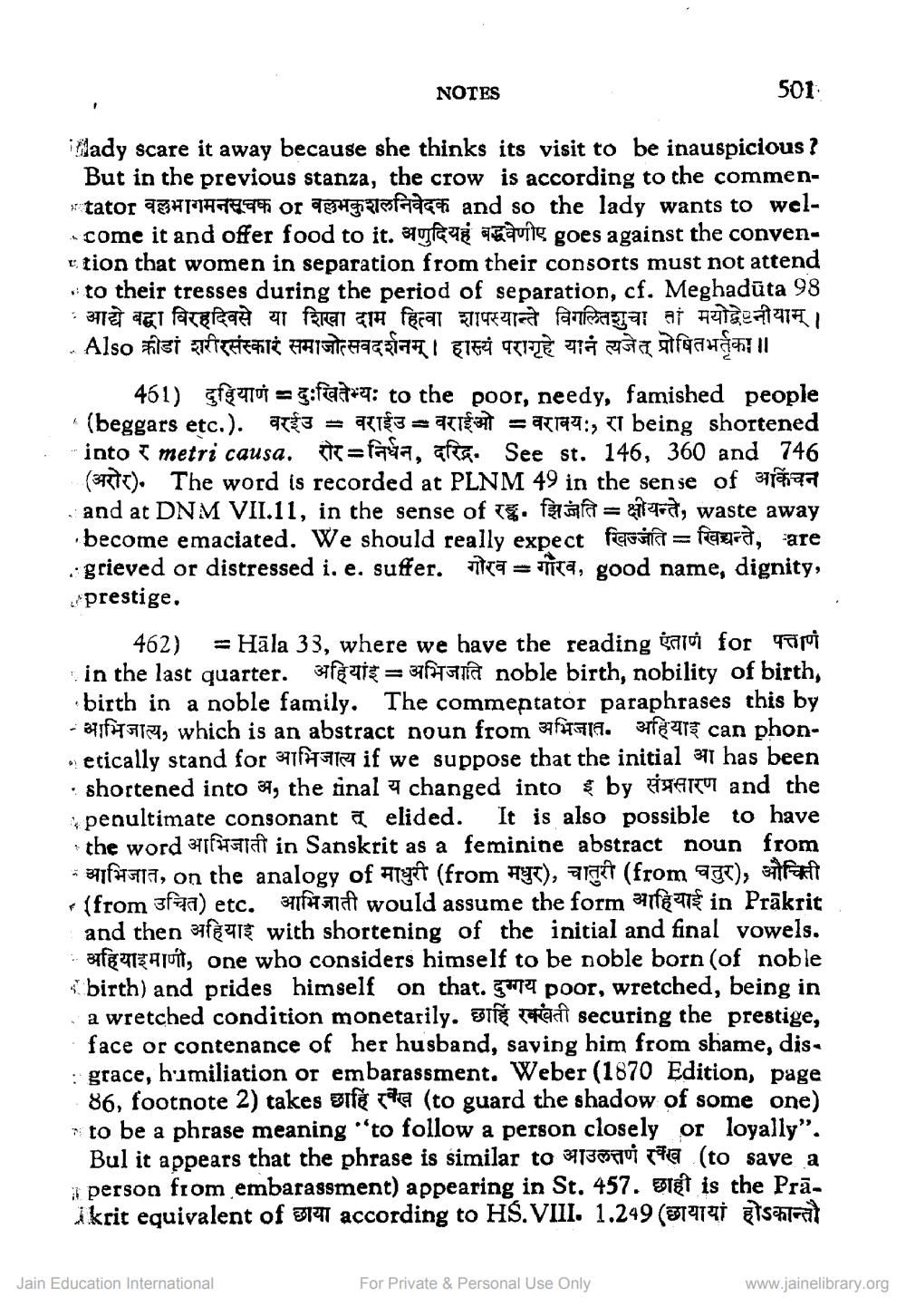________________
NOTES
501
tady scare it away because she thinks its visit to be inauspicious ?
But in the previous stanza, the crow is according to the commen#tator वल्लभागमनसूचक or वल्लभकुशलनिवेदक and so the lady wants to wel
come it and offer food to it. Bucas a teavite goes against the convenstion that women in separation from their consorts must not attend
to their tresses during the period of separation, cf. Meghadūta 98 - आद्ये बद्धा विरहदिवसे या शिखा दाम हित्वा शापस्यान्ते विगलितशुचा ai मयोद्वेनीयाम् । . Also क्रीडां शरीरसंस्कार समाजोत्सवदर्शनम् । हास्यं परागृहे यानं त्यजेत् प्रोषितभर्तृका ।।
461) gigalu = g:faara: to the poor, needy, famished people (beggars etc.). gris = 9133 = 273 = 271949:, I being shortened into 5 metri causa. t=fawa, ofis. See st. 146, 360 and 746 (34770). The word is recorded at PLNM 49 in the sense of spirit and at DNM VII.11, in the sense of . fgha = trd, waste away become emaciated. We should really expect fees = fagra, are grieved or distressed i. e. suffer. 1a = a, good name, dignity, prestige.
462) = Hāla 33, where we have the reading tarvi for gari in the last quarter. Bfait = 37f97a noble birth, nobility of birth, birth in a noble family. The commentator paraphrases this by - आभिजात्य, which is an abstract noun from अभिजात. अहियाइ can phon• etically stand for fifth if we suppose that the initial 371 has been • shortened into 37, the final a changed into $ by UERU and the penultimate consonant a elided. It is also possible to have the word Thala in Sanskrit as a feminine abstract noun from * #517, on the analogy of Ayat (from Ayt), argi (from 90T), FRA • {from उचित) etc. आभिजाती would assume the form आहियाई in Prakrit and then this with shortening of the initial and final vowels. BETTATUÍT, one who considers himself to be noble born (of noble <birth) and prides himself on that. G774 poor, wretched, being in a wretched condition monetarily. El tabell securing the prestige,
face or contenance of her husband, saying him from shame, dis: grace, humiliation or embarassment. Weber (1870 Edition, page 86, footnote 2) takes sifthe (to guard the shadow of some one) to be a phrase meaning to follow a person closely or loyally".
Bul it appears that the phrase is similar to 311369ui vie (to save a i person from embarassment) appearing in St. 457. ggt is the Prā. ikrit equivalent of 3191 according to HS. VIII. 1.249 (319141 atspiral
Jain Education International
For Private & Personal Use Only
www.jainelibrary.org




